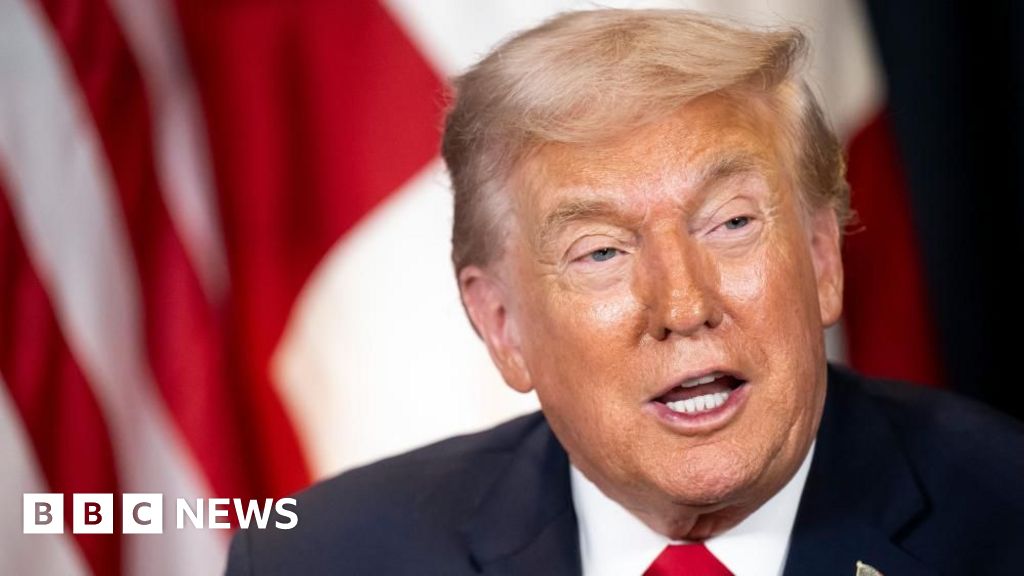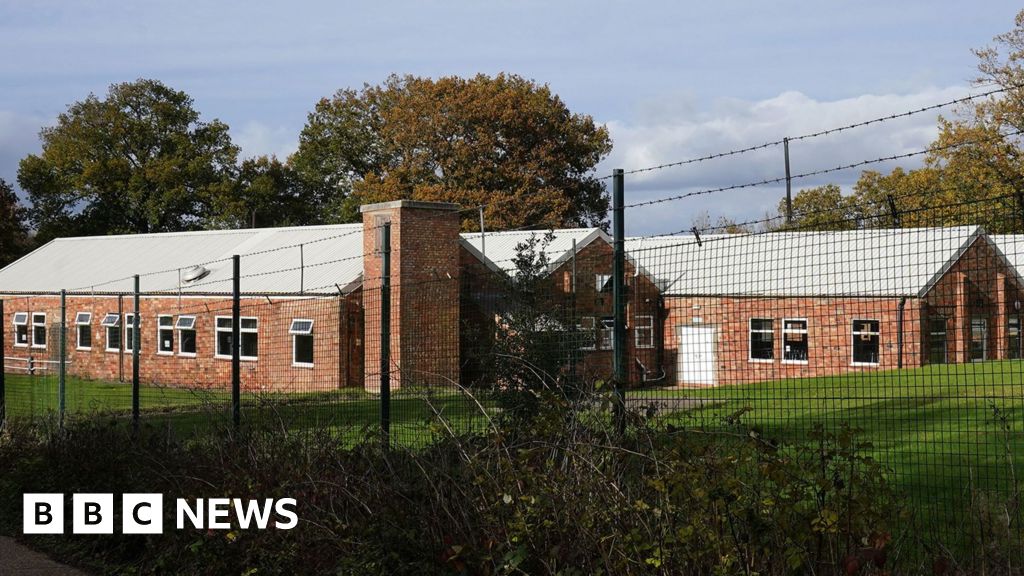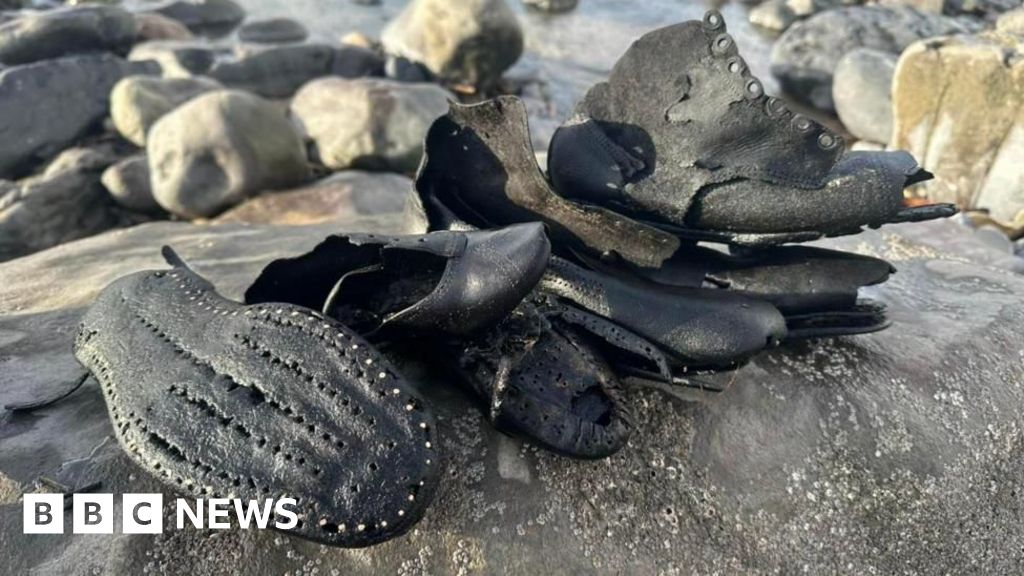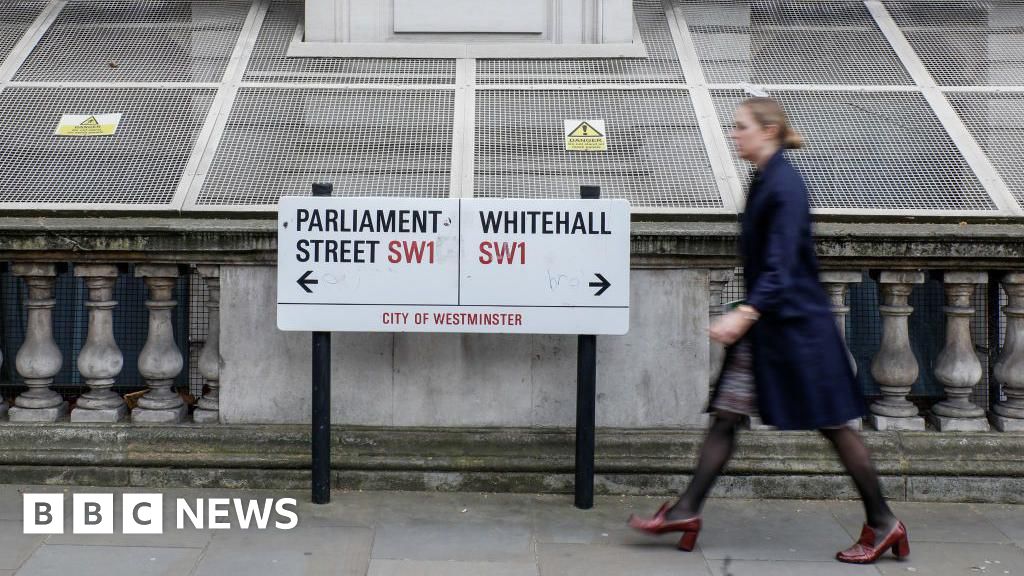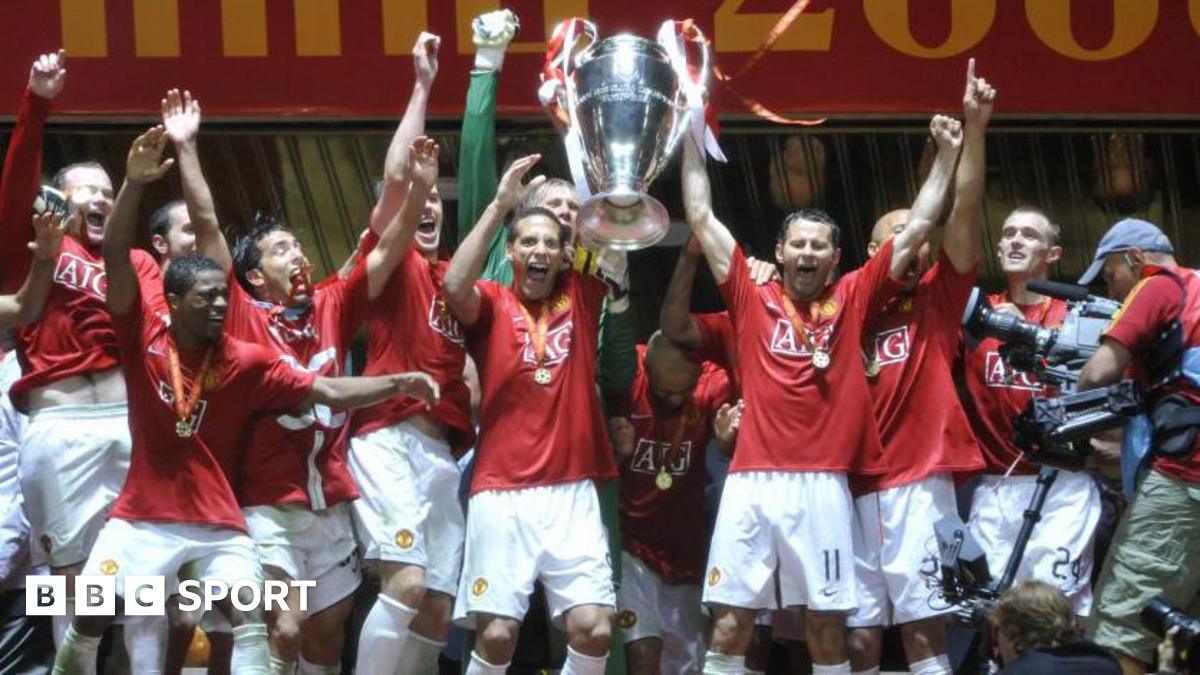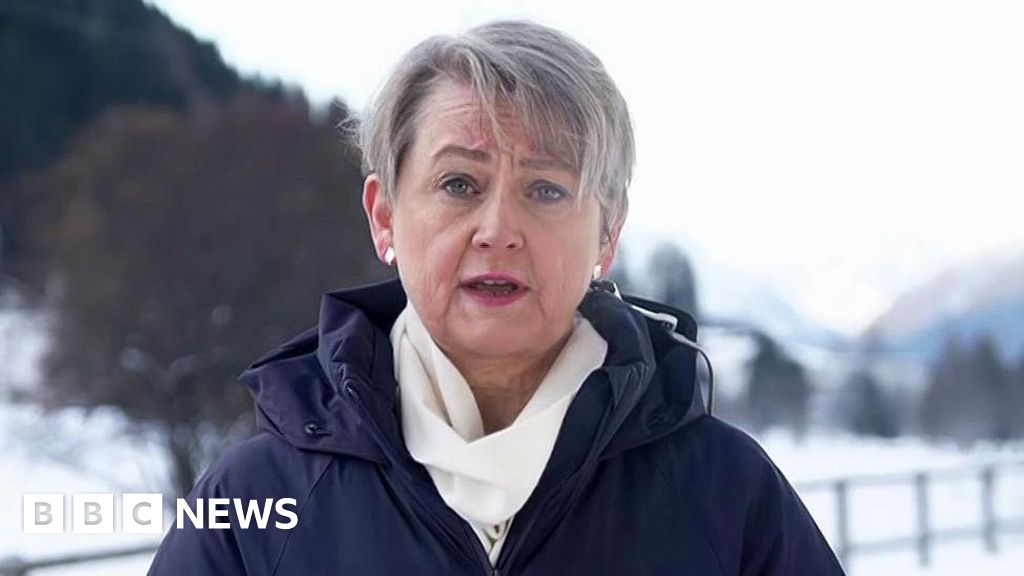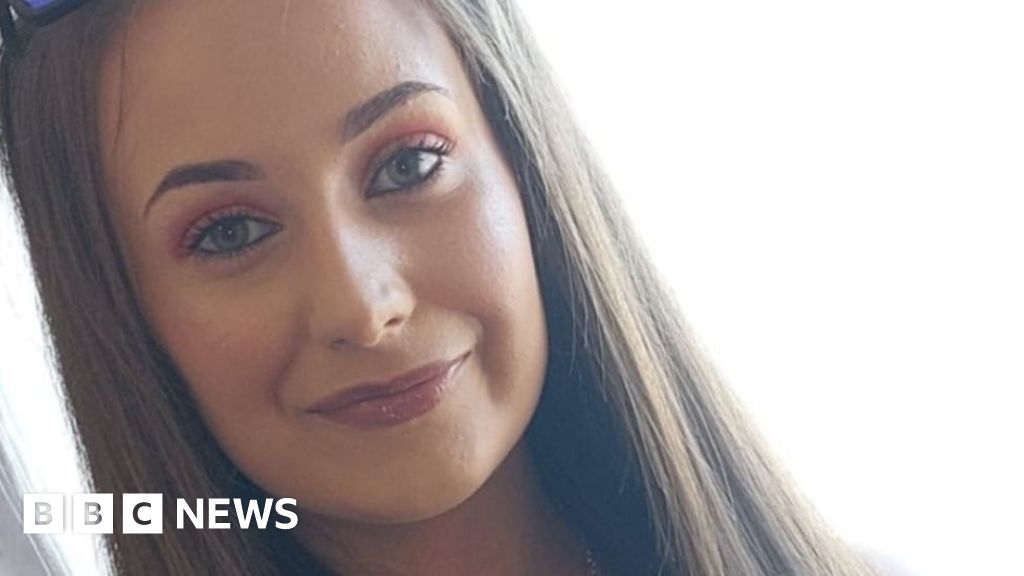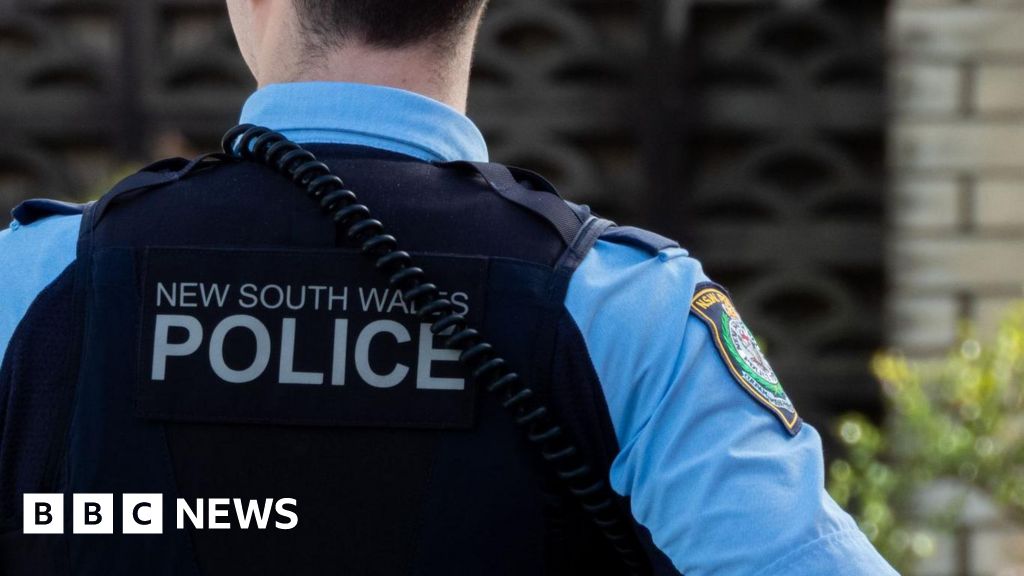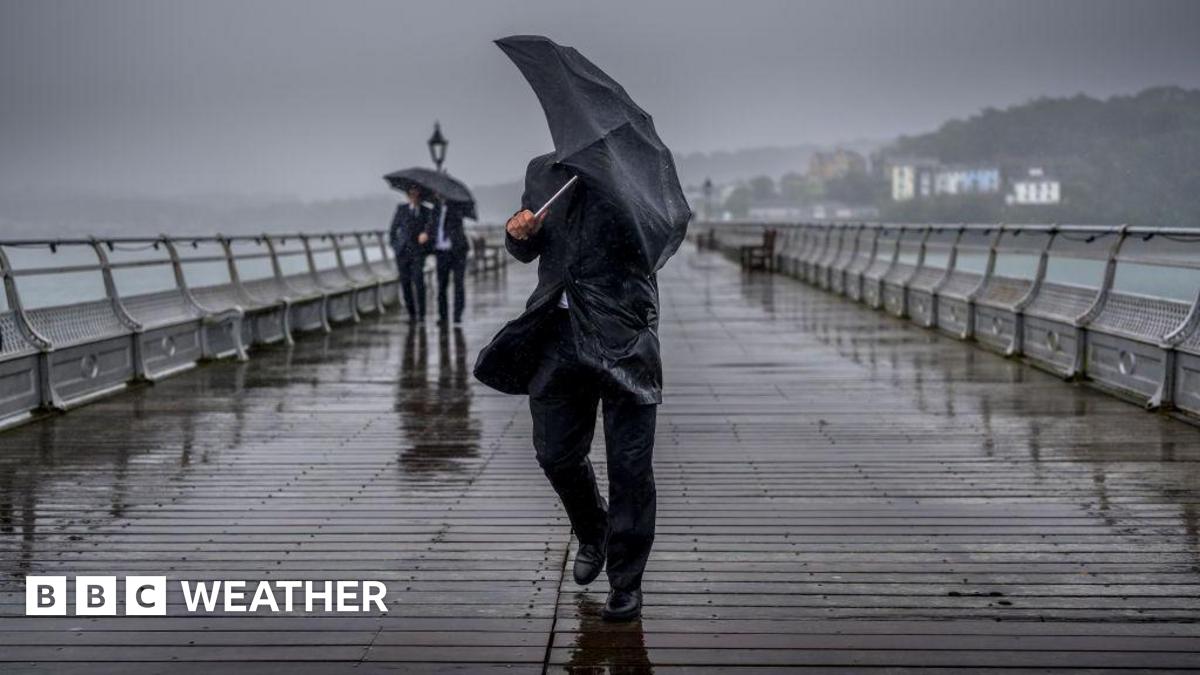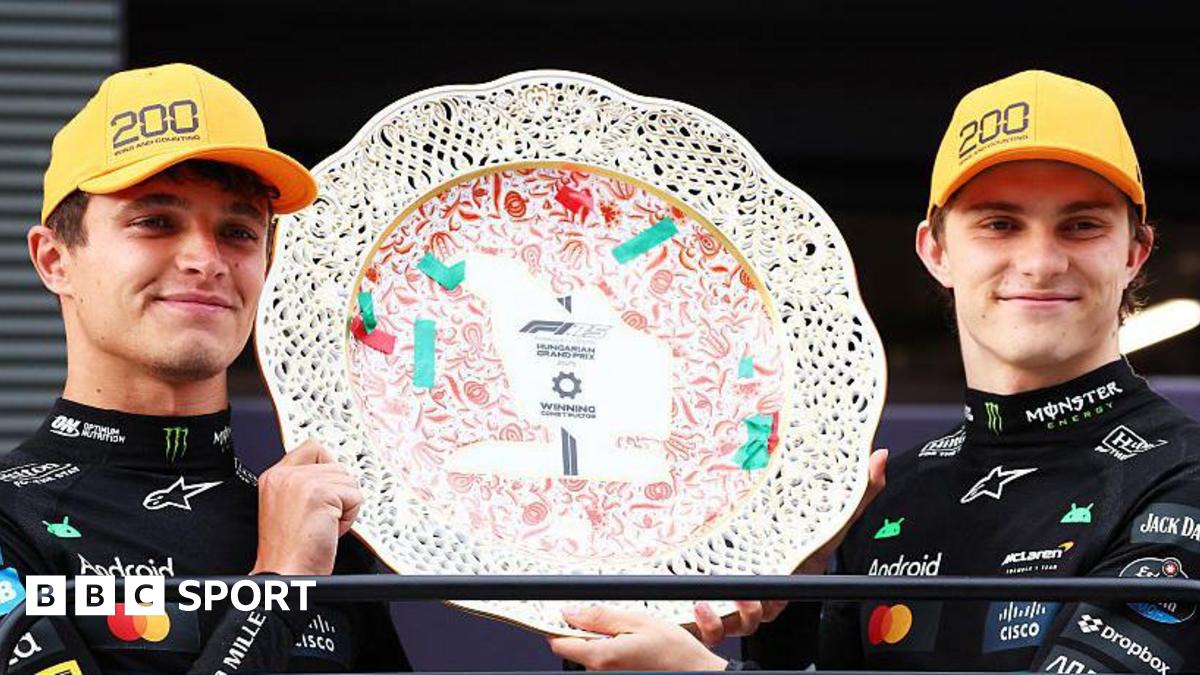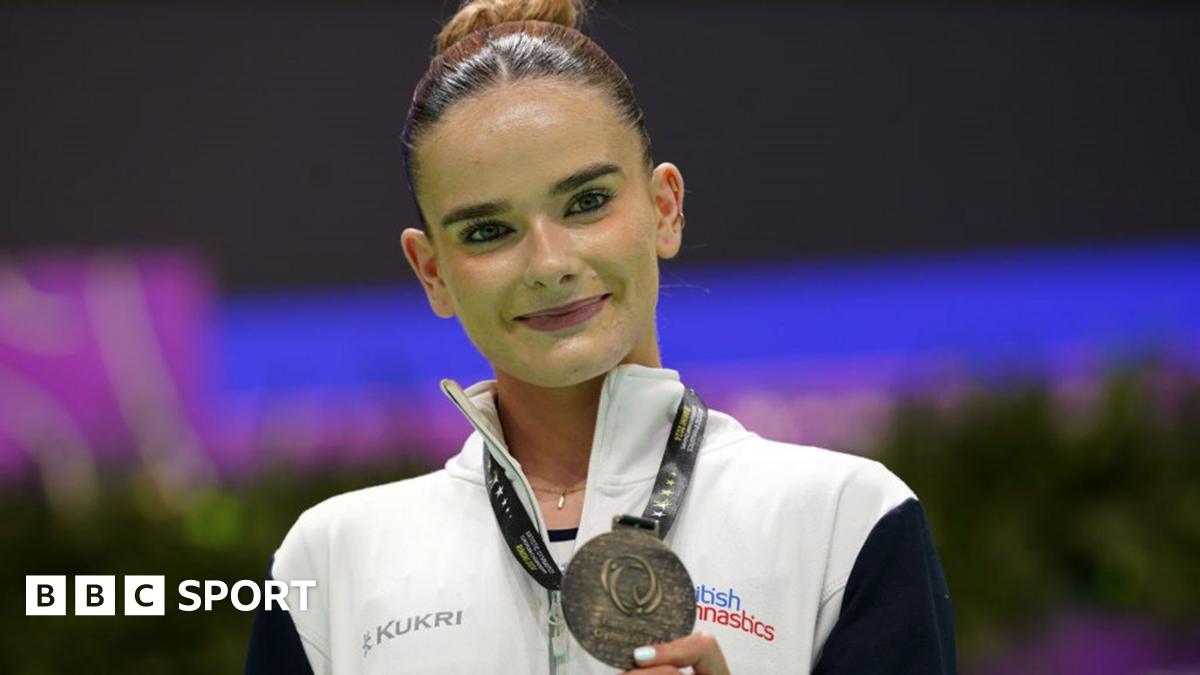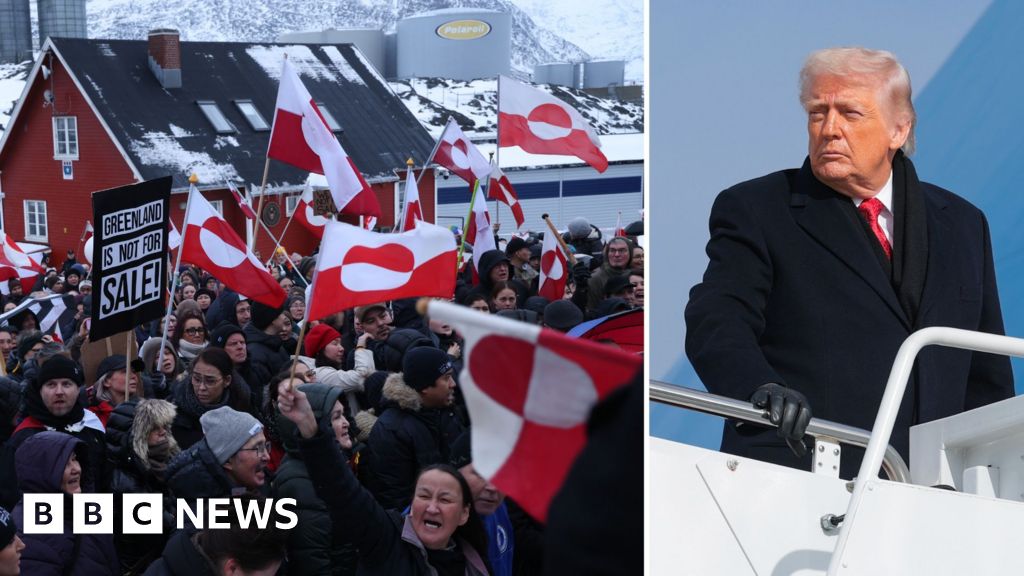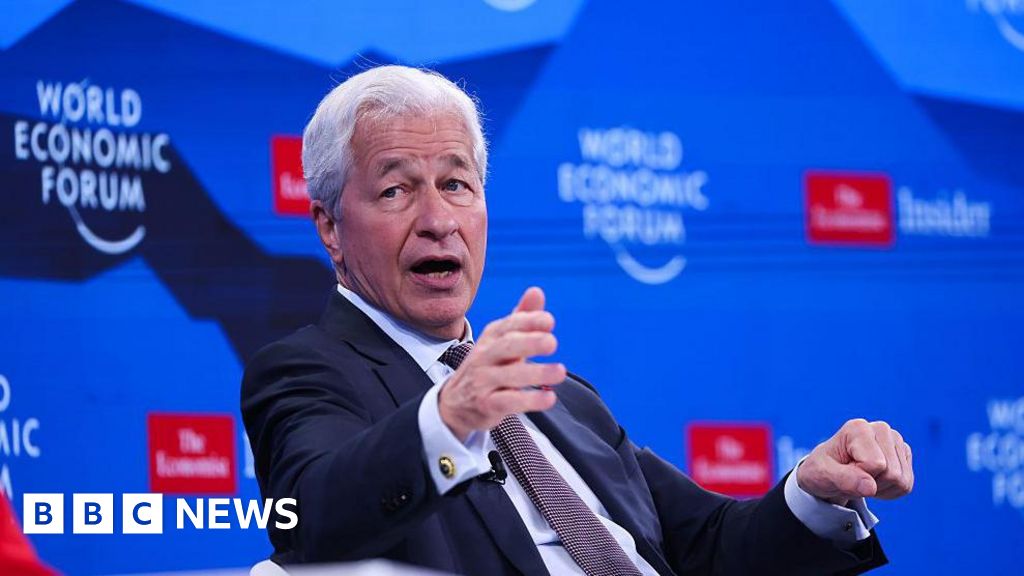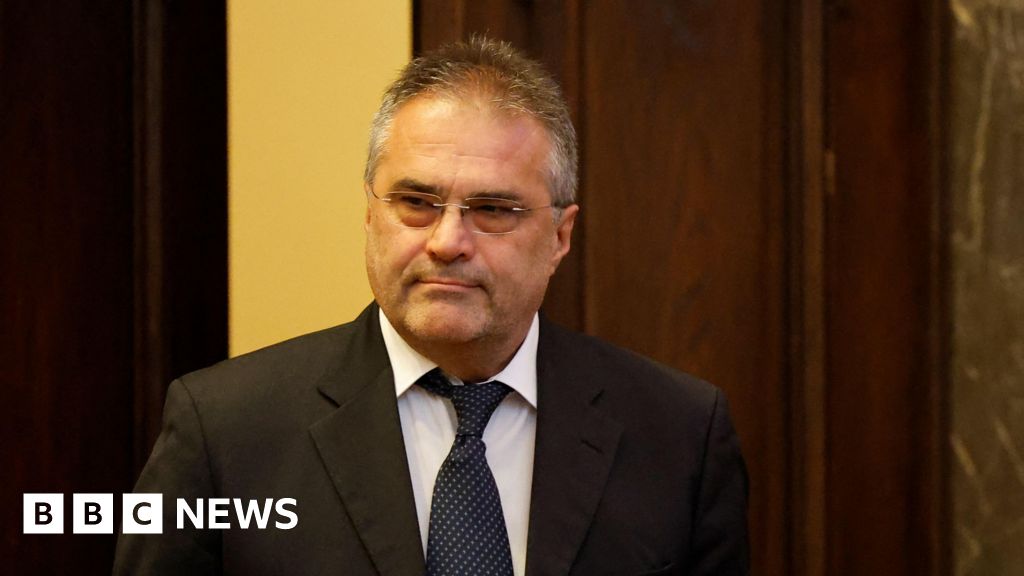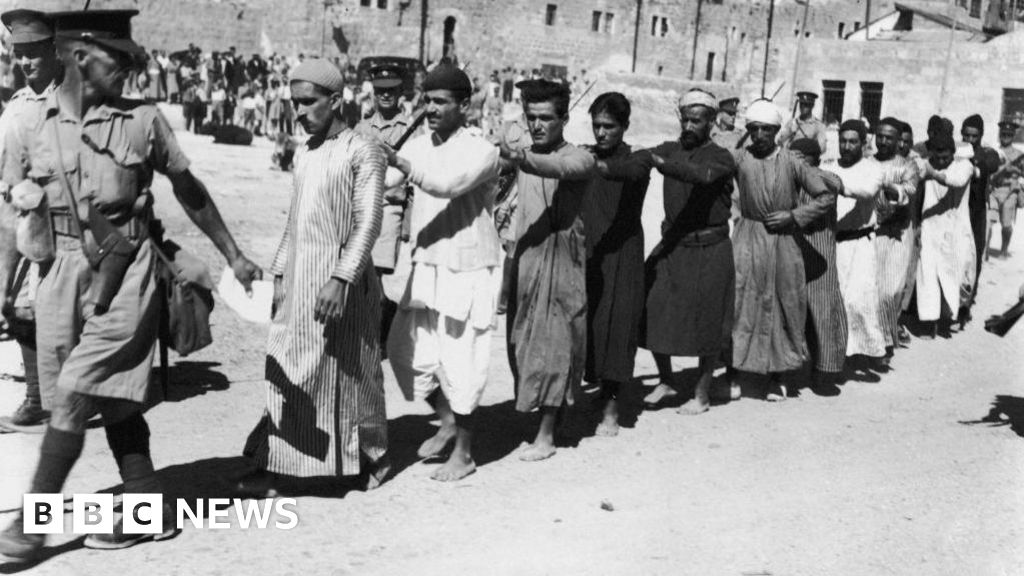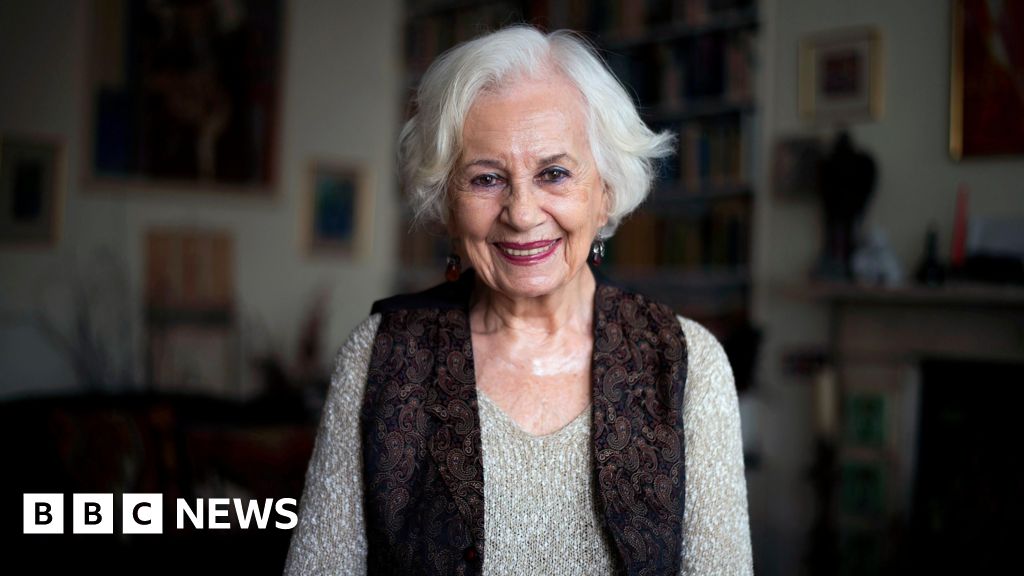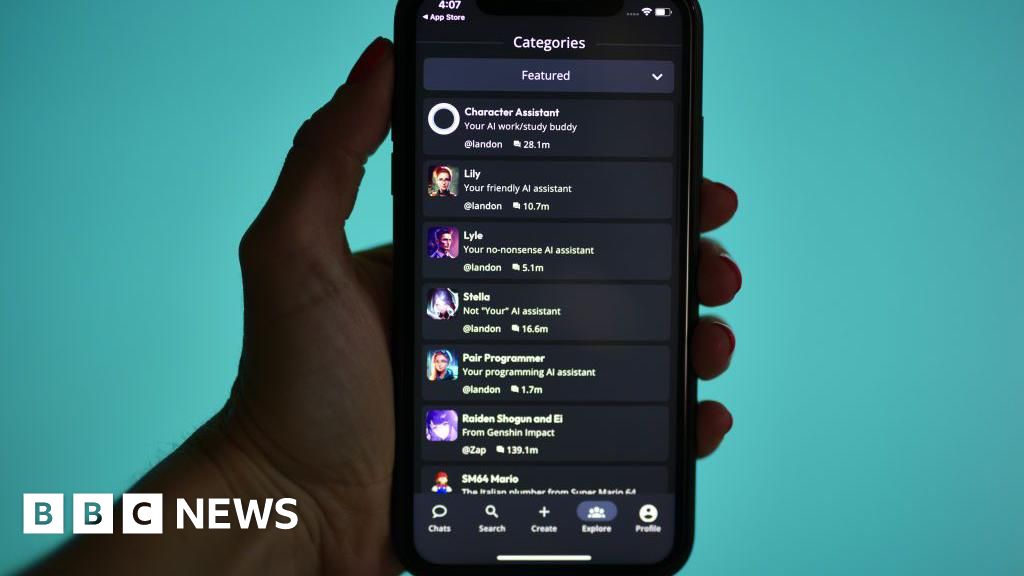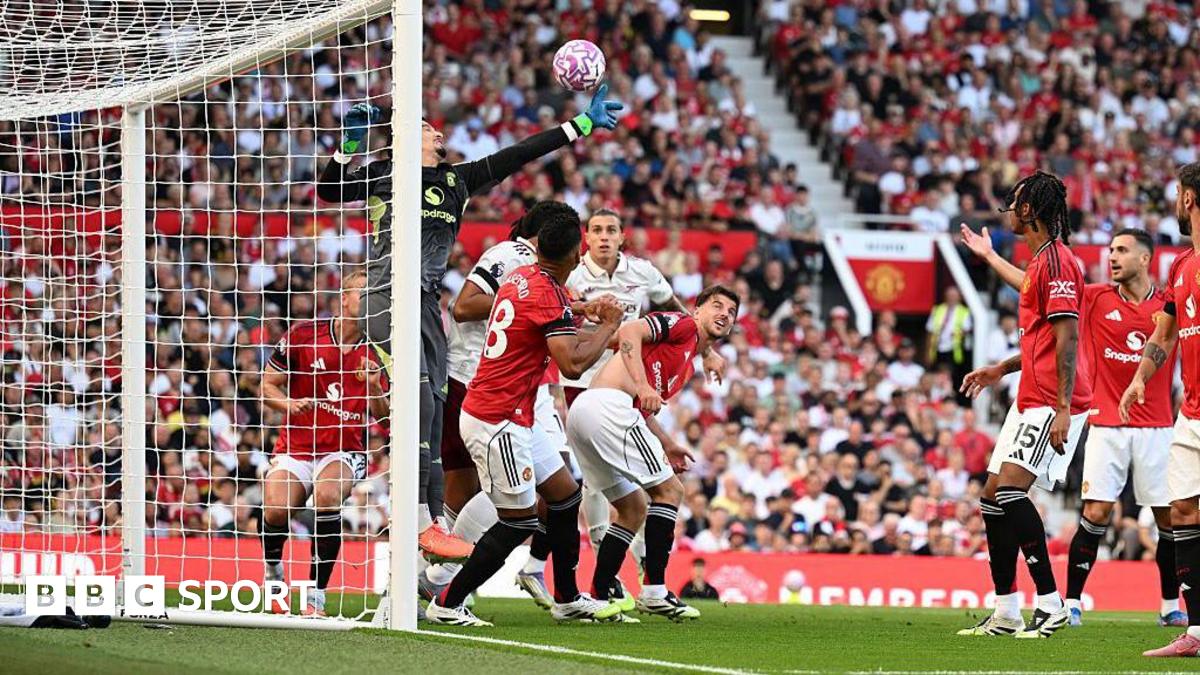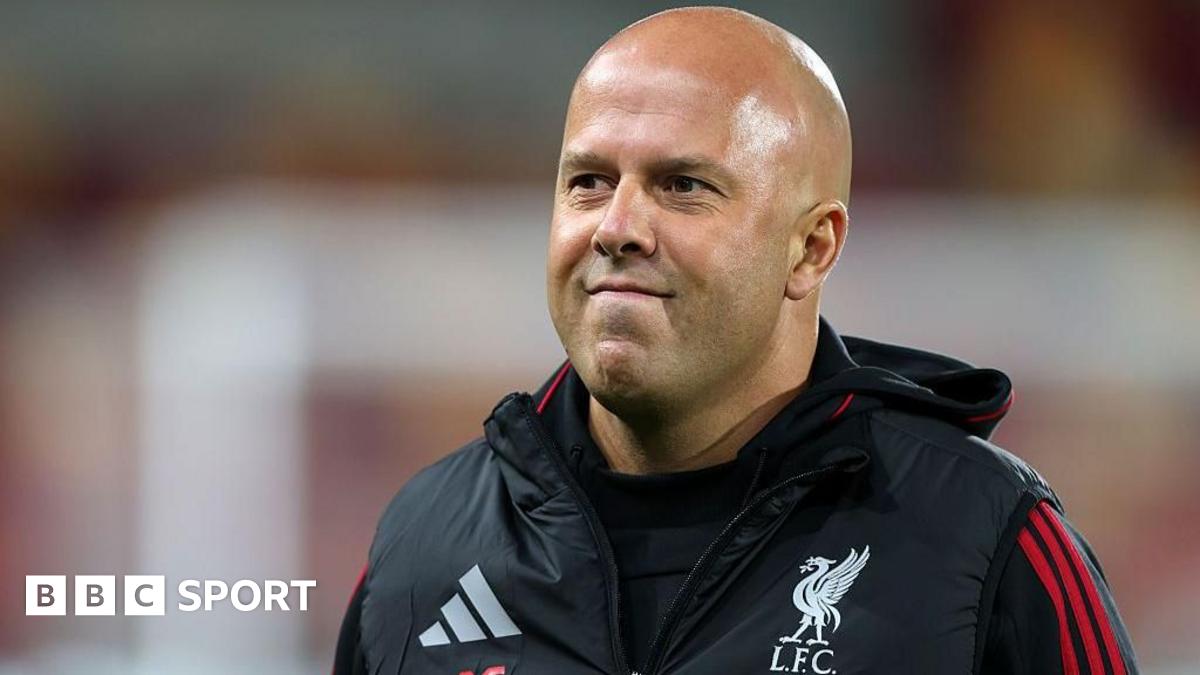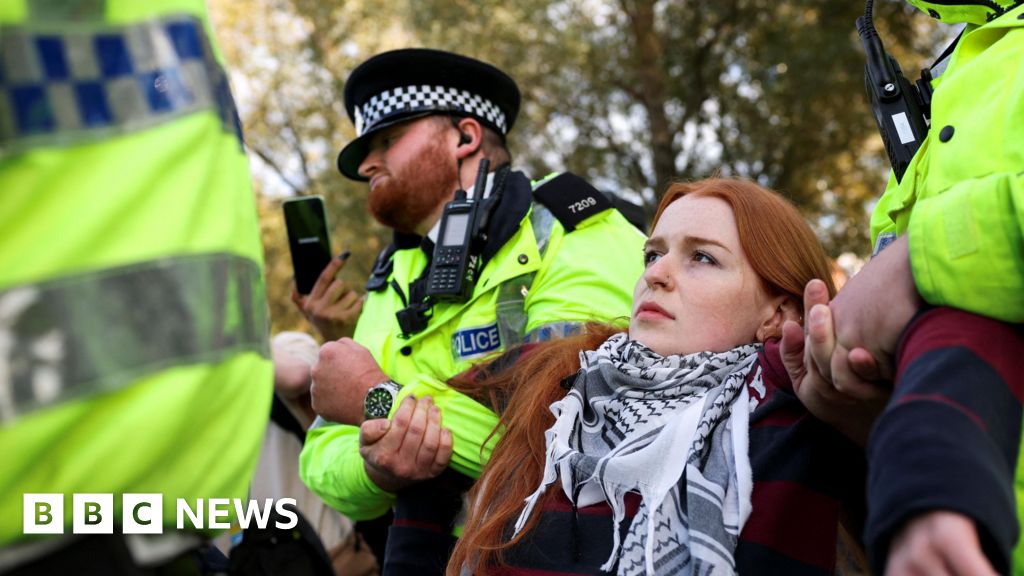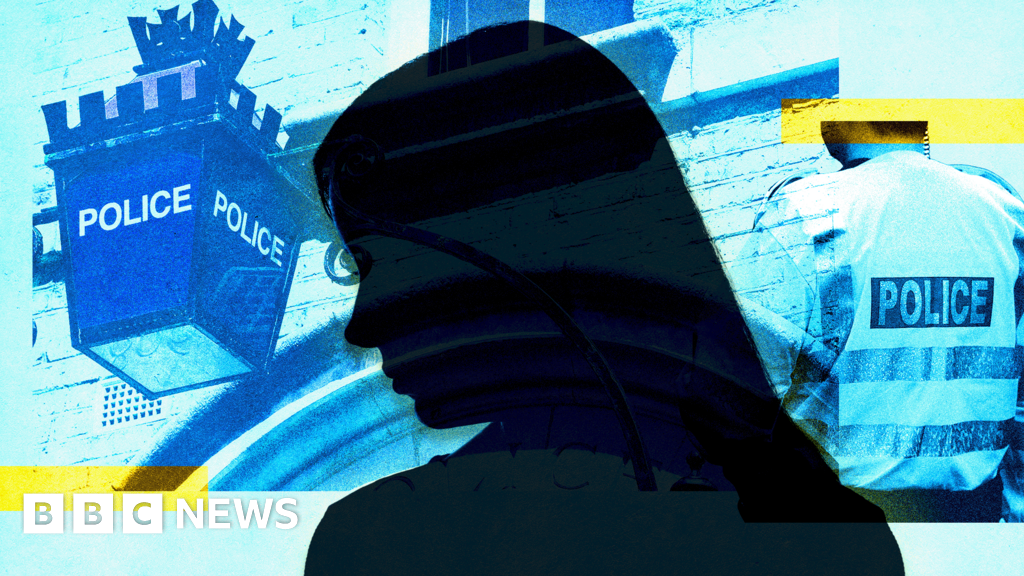Paul KirbyEurope digital editor and Hugh Schofieldin Paris

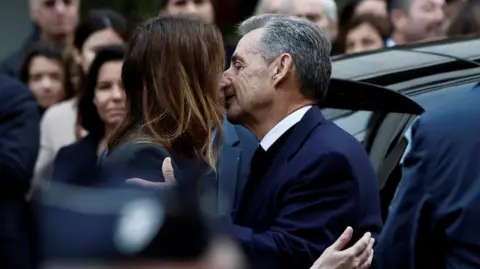 Reuters
Reuters
Sarkozy kissed his wife Carla Bruni-Sarkozy as he left his home for jail, surrounded by supporters
Nicolas Sarkozy has become the first French ex-president to go to jail, as he starts a five-year sentence for conspiring to fund his election campaign with money from late Libyan dictator Muammar Gaddafi.
Not since World War Two Nazi collaborationist leader Philippe Pétain was jailed for treason in 1945 has any French ex-leader gone behind bars.
Sarkozy, who was president from 2007-2012, has appealed against his jail term at La Santé prison, where he is will occupy a cell roughly measuring 9 sq m (95 sq ft) in the jail's isolation wing.
More than 100 people stood outside his villa in the exclusive 16th district of Paris, after his son Louis, 28, called on supporters for a show of support.
Another son, Pierre, called for a message of love - "nothing else, please".
Nicolas Sarkozy, 70, arrived at the entrance to the notorious 19th-Century prison in the Montparnasse district south of the River Seine at 09:40 (07:40 GMT), amid high security.
He continues to protest his innocence in the highly controversial Libyan money affair and posted a message on X as he was driven to the jail, saying "I have no doubt. Truth will prevail. But how crushing the price will have been".
"With unwavering strength I tell [the French people] it is not a former president they are locking up this morning - it is an innocent man," he wrote. "Do not feel sorry for me because my wife and my children are by my side... but this morning I feel deep sorrow for a France humiliated by a will for revenge."
Sarkozy has said he wants no special treatment at La Santé prison, although he has been put in the isolation section for his own safety as other inmates are infamous drugs dealers or have been convicted for terror offences.
Other than Philippe Pétain, the only other former French head of state to have been jailed was King Louis XVI before his execution in January 1793.

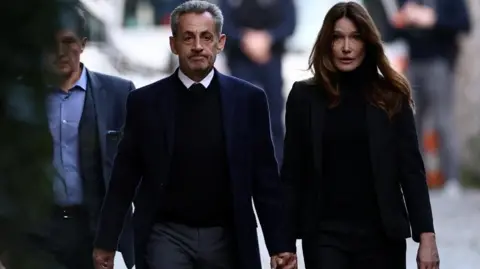 Reuters
Reuters
Nicolas Sarkozy has maintained his innocence and has lodged an appeal
Inside his cell he will have a toilet, shower, desk and small TV. He will be allowed one hour a day for exercise, by himself.
At the end of last week he was received at the Élysée Palace by President Emmanuel Macron, who told reporters on Monday "it was normal that on a human level I should receive one of my predecessors in that context".
In a further measure of official support for the ex-president, Justice Minister Gérald Darmanin said he would go to visit him in prison as part of his role in ensuring Sarkozy's safety and the proper functioning of the jail.
"I cannot be insensitive to a man's distress," he added.
Ahead of his arrival at La Santé prison, Sarkozy gave a series of media interviews, telling La Tribune: "I'm not afraid of prison. I'll keep my head held high, including at the prison gates."
Sarkozy has always denied doing anything wrong in a case involving allegations that his 2007 presidential campaign was funded by millions of euros in Libyan cash.
The former centre-right leader was cleared of personally receiving the money but convicted of criminal association with two close aides, Brice Hortefeux and Claude Guéant, to talk to the Libyans about secret campaign financing.
The two men both had talks with Gadaffi's intelligence chief and brother-in-law in 2005, in a meeting arranged by a Franco-Lebanese intermediary called Ziad Tiakeddine, who died in Lebanon shortly before Sarkozy's conviction.
As he lodged an appeal, Sarkozy is still considered innocent but he has been told he must go to jail in view of the "exceptional seriousness of the facts".
Sarkozy said he would take two books with him into prison, a life of Jesus and the Count of Monte Christo, the story of a man wrongly imprisoned who escapes to wreak vengeance on his prosecutors.

 3 months ago
76
3 months ago
76

